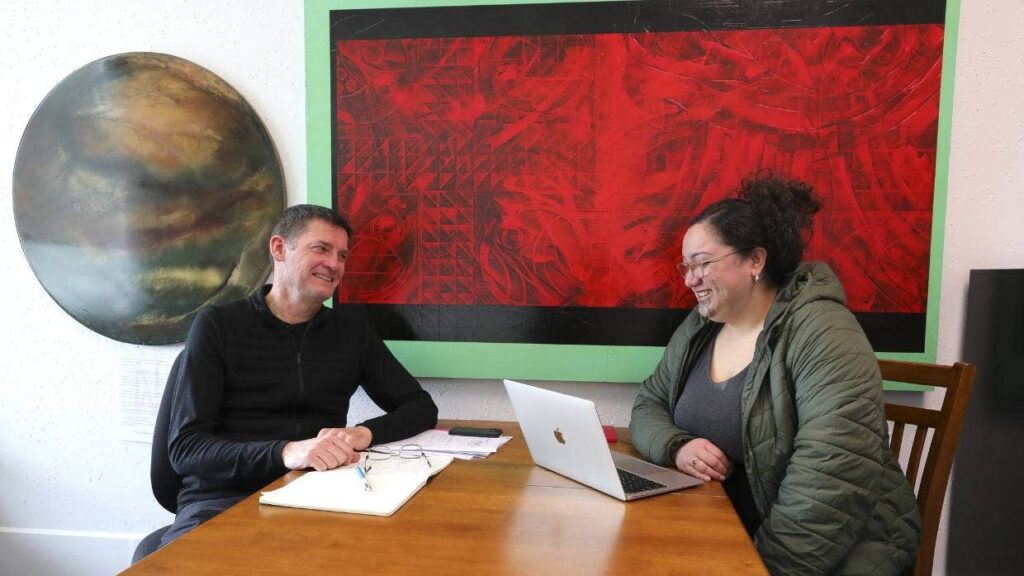Murihiku Regeneration is proposing that a skills hub be established in Southland to help the more than 2000 workers who’ll be impacted if the New Zealand Aluminium Smelter closes.
The hub would employ a team to help those impacted by the Tiwai Point smelter’s potential closure choose their next career steps and possibly retrain, while making sure they have the social and wellbeing support they may need to do make the shift without putting their families on the back foot.
Murihiku Regeneration have made the recommendation of a hub as part of a report to the Southland Just Transition oversight group who are compiling a budget bid.
The bid will tell the Government what the region needs to weather the potential economic fall out of the smelter closure.
The exact mechanics of how the hub would work and the training resources and social services people will need will be considered if the budget bid is successful.
Te Ara Aukati Kore programme lead Ivan Hodgetts and Murihiku Regeneration Kaiarahi Hōtaka (programme development officer) Mapihi Kahurangi Davis worked on the report and said the idea was to create a response to education and career development.
“It’s putting the whānau at the centre [of decision-making] and then putting everything else around them because if you don’t look after the person, they can’t achieve what you’re expecting,” Kahurangi Davis said.
The Ministry of Business, Innovation and Employment (MBIE) estimates that wage scarring – the income families lose when someone transitions between jobs – costs New Zealand $9.76 billion a year and Hodgetts said the idea behind this plan was to get ahead of that.
Hodgetts and Kahurangi Davis are also working to build Murihiku’s future workforce, making sure the region has the skills it will need for future industries.
While they don’t yet know what those skills will be, they know that rangatahi will need support acquiring them.
Murihiku Regeneration’s Te Ara Aukati Kore (pathways without barriers) programme helps young people map out a plan for the start of their adult lives and makes sure they are aware of all the options available to them.
Hodgetts and Kahurangi Davis are working with education providers to make sure tertiary options are responsive to what rangatahi need and with employers to give young people a chance to decide if the career path they’ve chosen is right for them, before they leave school.
Article written by: Louisa Steyl
Published in Stuff 6 September 2022
